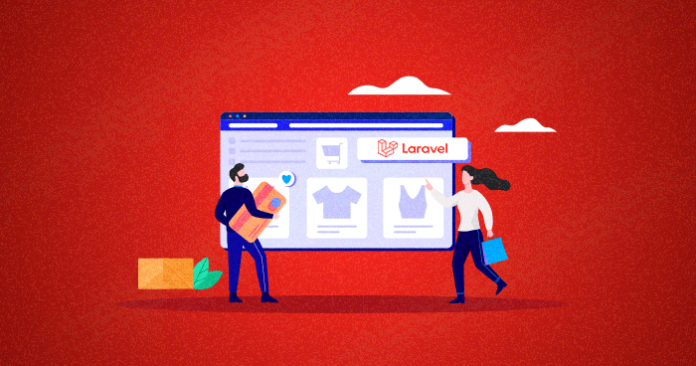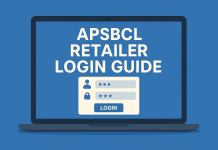Since its first beta release in 2011, Laravel never looked back as a framework and constantly evolved with growing capabilities to offer seamless user experiences for websites. Today, it’s widely popular as a dynamic and highly efficient web development framework with the most expressive and elegant syntax.
Laravel has also become a proven testament to effective eCommerce development. Laravel developers have ample opportunities to innovate various touchpoints in eCommerce development due to this framework’s lightweight architecture, horizontal scalability, and features for seamless integration. Moreover, its constantly refined cyber security makes it a fit choice for those looking for utterly secured payment integrations with multiple gateways. This post evaluates the scope and benefits of Laravel and how effectively it has emerged as
Laravel’s Journey in Brief
Taylor Otwell- a .NET developer -started working on some of the most common complexities of PHP keeping “ease-of-use” as his prime target. In June 2011, he developed a fully-functional beta version of the Laravel framework. The framework started getting global recognition because of its structure, syntax, and components that were quite straightforward for even beginner developers.
Laravel 2 came in the same year (November 2011), and Laravel 3 in February 2012. Time flew swiftly, and the framework got better. Later, the integration of tools like PHPStorm, Laravel IDE Helper, Blade syntax Highlighter plugin, Aura, Net Beans, and Laravel Repository made it one of the most competent frameworks in the world for developing websites, applications, and enterprise-level software. Laravel 9 is the latest updated version that comes with a new query builder interface and support for Symphony 6.0.
The eCommerce Point of View & Benefits
Laravel has evolved as an exceptional framework for web & app development, and its numerous capabilities make it a fit choice for eCommerce development. Laravel offers scalability, clean codes, performance optimization, and ample built-in libraries and packages that enable eCommerce developers to deliver highly responsive online stores. The best part is that you don’t need any additional CMS integration. Here are some other critical reasons to choose Laravel for eCommerce development.
Impeccable Data Security
Online stores need seamless integration with multiple payment gateways accepting payments beyond different geographical boundaries. Moreover, they also need to store sensitive and critical user data regarding their financial details. This can make your site vulnerable to cyberattacks.
Laravel offers an expressive ORM system and pre-installed object-oriented libraries allowing developers to access PHP codes directly. They use XSS and SQL injections to protect their codes and offer foolproof security to online stores. Additionally, the Bcrypt hashing algorithm ensures encrypted passwords offering robust protection against any kind of data loss. The safety-first approach of Laravel’s architecture puts an end to all possible security vulnerabilities and assures online retailers to run their stores with great ease and peace.
Affordability that Attracts Maximum Start-ups
Cost is a critical factor to consider before starting eCommerce development. Laravel has the least dependency on third-party integrations, and this automatically reduces the extra costs incurred on integrating additional APIs. Laravel is a self-sufficient framework with which developers can easily instill various customized features in your eCommerce website, and that too, with zero downtime. This saves a lot of development costs and time, adding to the benefits of choosing Laravel for a limited-budget project or even for the most complex eCommerce development project.
Higher Scalability with Greater Ease
ECommerce is flourishing at an unprecedented rate, and so will your store. Hence, it will be smart to be prepared for the emerging needs of your store, increased products, and server resources to deal with increased traffic.
Laravel offers a comprehensive set of pre-installed libraries that allow developers to deliver a range of features, including password reset and encryption. It also offers third-party packages to enhance the functionalities of your store as and when required. Laravel offers some smart tools to deal with the growing requirements of your online store. These tools can accommodate the unique requirements of growing eCommerce stores.
Abundant Packages for eCommerce
This is another open secret of Laravel’s success as a framework offering various packages for eCommerce development. This also makes the development process much simpler, faster, and hassle-free. Here are some most widely used eCommerce packages that Laravel offer:
- Aimeos– supports more than 100 payment gateways
- Get Candy– for REST API and admin interface to manage products, orders, and customers
- Bagisto– supports multiple store inventory & tracking features
- Laravel Shopping Cart– for added cart features
- AvoRed– for better and enhanced management capabilities
- Laraship– supports multiple well-designed themes
- Vanilo- for stability, testability & extendibility
- Digital Dreams– for better SEO practices including reviewing, reporting, Captcha, and SMS
These packages offer multiple benefits regarding each aspect of eCommerce development and developers can deliver a fully customized store using the fullest capabilities of these packages.
Hassle-free Database Migration
The database of an eCommerce site needs to be managed effectively with the growing requirements of the store. However, developers can migrate data manually with PHP, but that is a time-taking process. Laravel comes in very handy in expanding the compositions of a database and making different changes to it. Using Laravel’s schema builder, developers can simply modify and share the schema of an application’s database. This simplifies the process for online retailers when they want to launch an app for their store or switch to a different hosting service.
Easy Maintenance & Testing
Laravel simplifies the process of testing errors in code and database using its PHPUnit. The Model View Controller architecture of Laravel separates logic and presentation layers making testing and maintenance hassle-free for the development team. Additionally, the OOP-supported interface also enhances developers’ capabilities to go through a complete analysis of bugs and errors and modify existing codes.
Exceptional Support for Content Management
Content remains a key to promoting your online store and its products using different marketing channels. Laravel offers extended support for CMS-related work like creating, posting, and modifying blog posts, cataloging products, and many more. The framework also offers built-in plugins and themes to select the most appropriate for your store, considering your brand’s persona. This facilitates online retailers to develop a perfect content strategy to highlight their forte and stand out from the competition.
SEO-friendliness
Laravel helps developers to create SEO-friendly URLs to help your site get easily indexed by Google. Its exceptional support for caching boosts your site’s speed and helps it load faster. Developers create sitemaps and AMP pages by perfectly integrating the most appropriate meta tags, titles, and keywords for each page. Digital Dreams is a phenomenal SEO package by Laravel that lets you manage all SEO-related aspects with great ease and expertise.
Laravel’s Scope Beyond 2023
The growing support for item-based libraries, superior safety, cost-effectiveness for start-ups, and options for scalability will continue to raise Laravel’s popularity in the coming years. Its huge developers’ community also keeps releasing regular updates for Laravel, considering the latest trends in web & app development.
Hence, we can conclude that the framework has established its roots deep in the hearts of worldwide developers allowing them to deliver full-fledged professional websites and applications.
Summary: The write-up introduces some top benefits of using Laravel in eCommerce development and its future scope as a framework for the growing needs of online retailers. You will learn how Laravel evolved as a robust framework and what critical eCommerce packages it offers to developers to meet their client’s unique requirements. Laravel has gained huge popularity over the past few years, especially in the eCommerce segment. This post evaluates how beneficial this framework will prove to be in developing a custom eCommerce website or app. The growing set of in-built libraries and eCommerce packages offered by Laravel saves development time and cost, making it a perfect choice for eCommerce development. This information will help you to leverage the fullest capabilities of this eminent framework to launch your online store in the quickest possible time.






